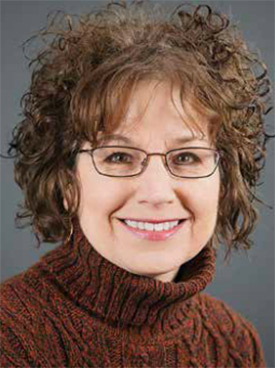Princeton Ministries Host Women’s Wellness Event
By Catherine Elvy, Staff Writer
God designed women to enjoy a profound sense of wholeness and peace as the fruit of yielding their hearts to a loving savior.That was one of the major themes from Ellen Dykas when the women’s ministry coordinator for Harvest USA appeared at Princeton University at the invitation of four campus ministries.
 On February 24, Dykas took to a podium inside Whig Hall to help share God’s design for healthy relationships with female students at Princeton University. More than 50 women attended the annual Women’s Wellness event.
On February 24, Dykas took to a podium inside Whig Hall to help share God’s design for healthy relationships with female students at Princeton University. More than 50 women attended the annual Women’s Wellness event.The campus ministries came together to help highlight the importance of relational and sexual wholeness via the lordship of Christ. Athletes in Action, Manna Christian Fellowship, Princeton Evangelical Fellowship, and Princeton Faith and Action co-sponsored the event on behalf of female undergraduates.
When believers do not understand God’s gracious plan to provide for their internal and external wholeness, they are “prone to wander away from Christ,” said Dykas. With that, individuals who do not embrace Christ as their main source of fulfillment tend to search for it in “other places and experiences.”
The speaker, counselor, and author often ministers to women who are struggling with sexual and relational sins, and to those who have been impacted by the actions of others. Harvest USA, which is based in suburban Philadelphia, is dedicated to helping individuals and families hurt by sexual struggles. The ministry offers a plethora of resources to explain biblical sexuality to churches, organizations, and individuals.
As for her visit to Princeton, Dykas said believers need to pause to consider whether and how they tend to substitute their affections for Christ, especially when it comes to relationships and sexual experiences.
Often, “we’re looking for something besides God to try to fill our hearts,” said Dykas, also the editor of Sexual Sanity for Women: Healing from Sexual and Relational Brokenness.
 With that, young women should ask themselves whether they are seeking to live on their own terms or asking their savior for His loving authority and assistance. Likewise, they should consider whether they truly want to pursue friendships that are pleasing to God and aligned with His ideal design for relationships, both with the opposite and same sex.
With that, young women should ask themselves whether they are seeking to live on their own terms or asking their savior for His loving authority and assistance. Likewise, they should consider whether they truly want to pursue friendships that are pleasing to God and aligned with His ideal design for relationships, both with the opposite and same sex. When it comes to discerning the differences between carnal and healthy behaviors, some college students are at a disadvantage, especially those who have never immersed themselves in the wealth of life-affirming principles found in the Bible.
“We all need help in growing up and into our salvation, which includes His design for relationships and sexuality,” said Dykas.
Young believers can be self-deceived about the nature of their conduct, and some do not process their behavior and desires through the “interpretive lens” of Scripture.
In matters of the heart, young adults also can be resistant to following God’s standards for relational behavior. “The soil of our hearts is hard,” said Dykas. “We’re scared that God will take away what we want, that He’ll deny us and hold back the best from us.”
Just as generations of humans have done dating back to the Garden of Eden, believers often ask, “Did God really say?” when confronted with temptation. Instead, believers need to embrace the ways Christ’s lordship influences individual perspectives, decisions, and behavior.
As well, it is critical for new believers to understand their identity in Christ, especially how they are chosen of God for kinship and divine intimacy.
In 2nd Corinthians 5: 15, the Apostle Paul noted how Christ gave His life on behalf of humankind. “And he died for all, that those who live should no longer live for themselves but for him who died for them and was raised again,” the verse explains.
As well, believers are called to be holy people, “sharing in God’s purity and abstaining from earth’s defilement,” Dykas told students.
More importantly, such followers are cherished of the Lord, and that divine allegiance should remain paramount.
Along those lines, Dykas called upon students to be honest about some of the “Jesus substitutes” in their hearts, especially with regards to the relationships they crave. In Jeremiah 2:13, the prophet explained, “My people have committed two sins: They have forsaken me, the spring of living waters, and have dug their own cisterns, broken cisterns that cannot hold water.”
Ultimately, Dykas wants her Christian sisters to know they are precious to God and can find healing and wholeness as they live out God’s plan for their lives and relationships. Colossians 3:1 instructs that since “you have been raised with Christ, set your hearts on things above.”
After all, God is “very much wanting to bring wellness and wholeness” into the lives of His beloved daughters.





